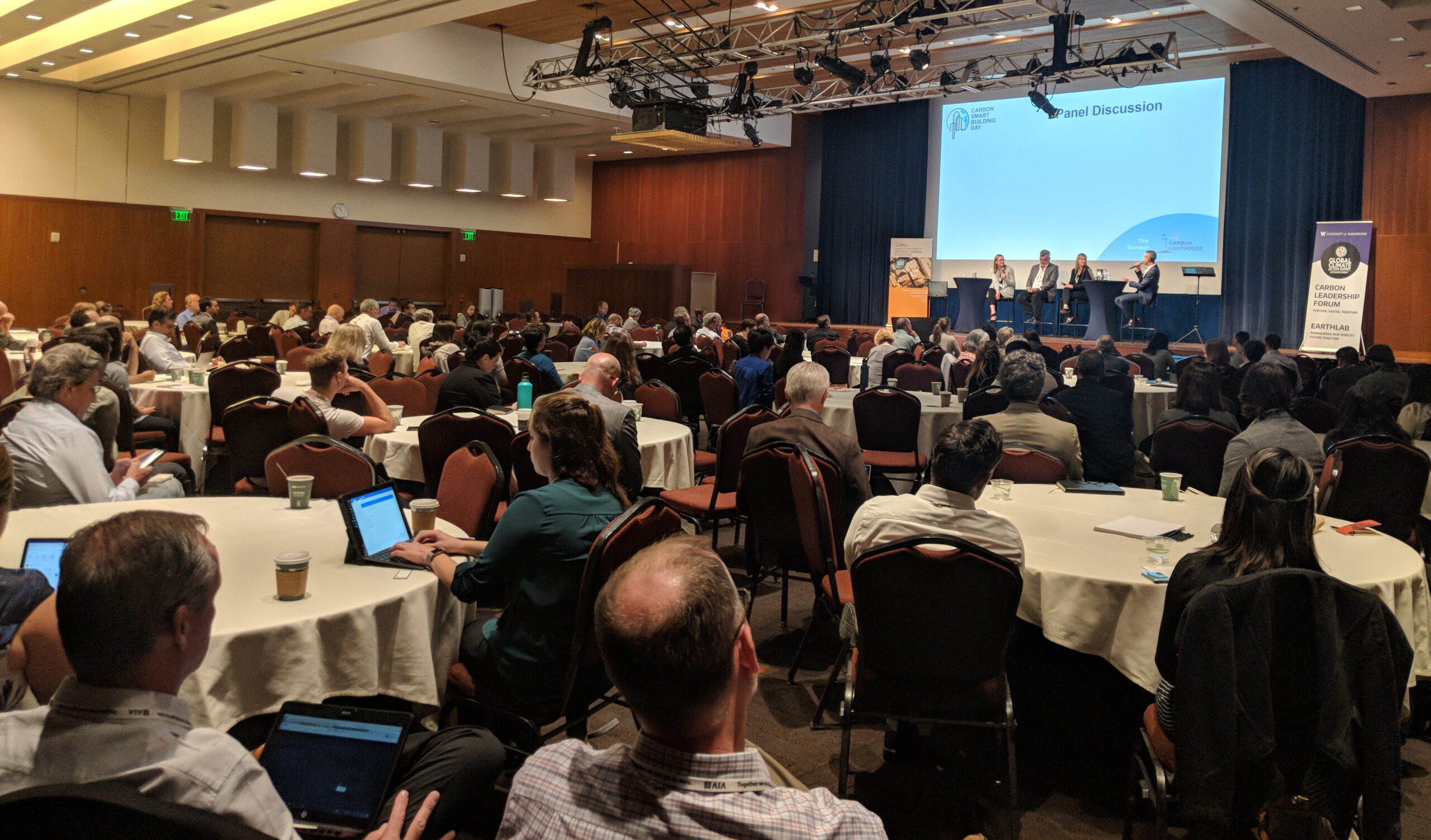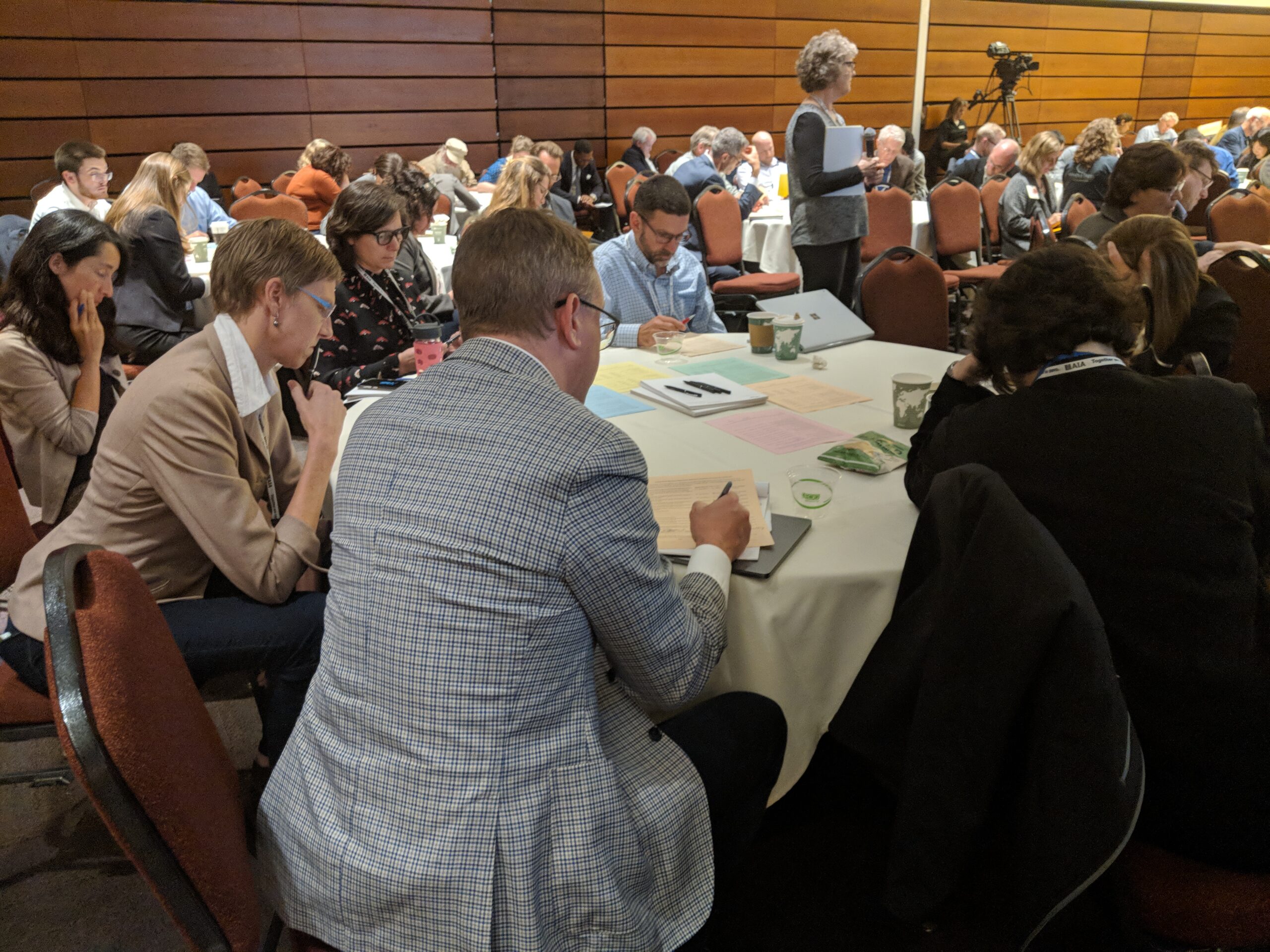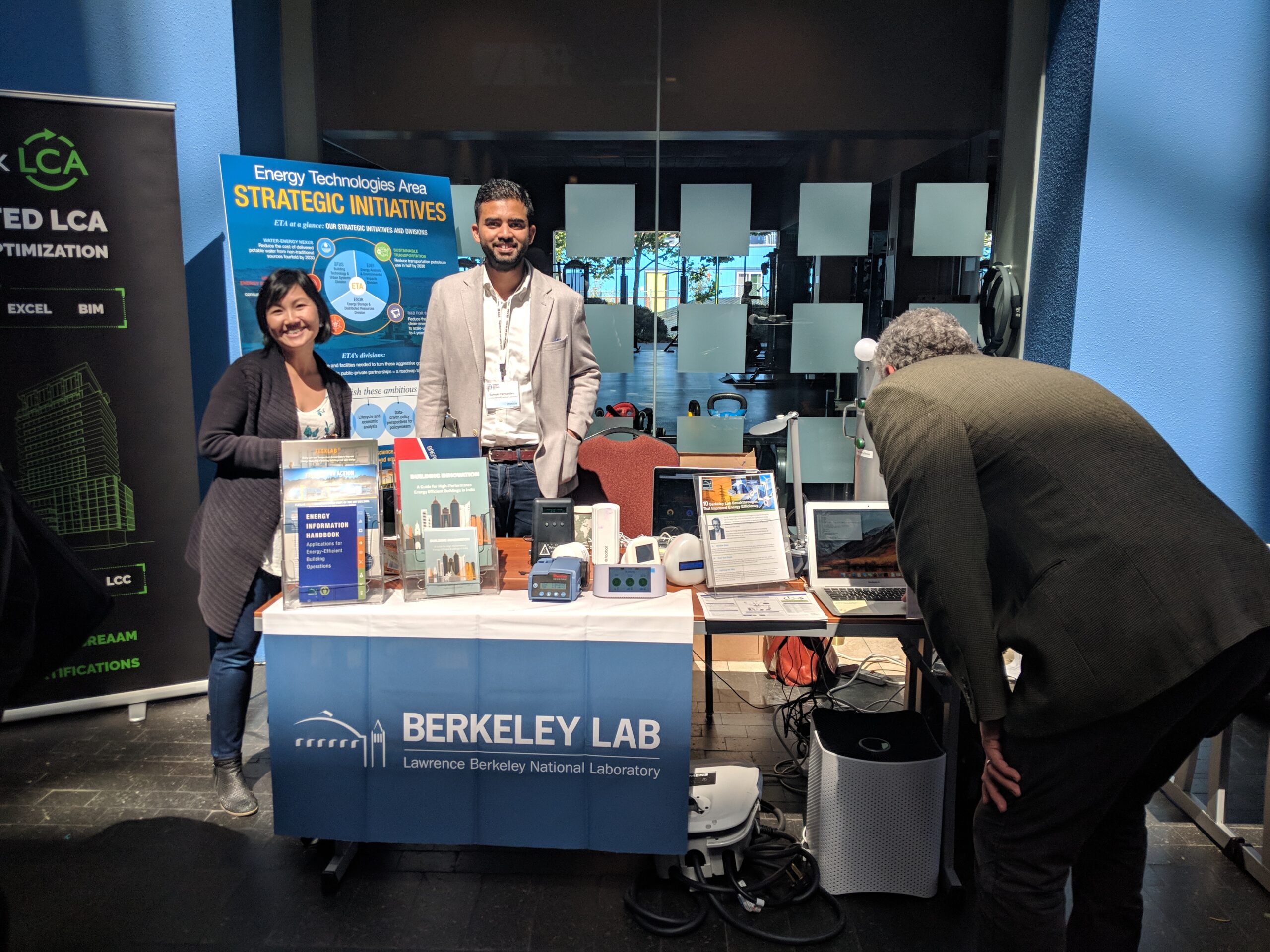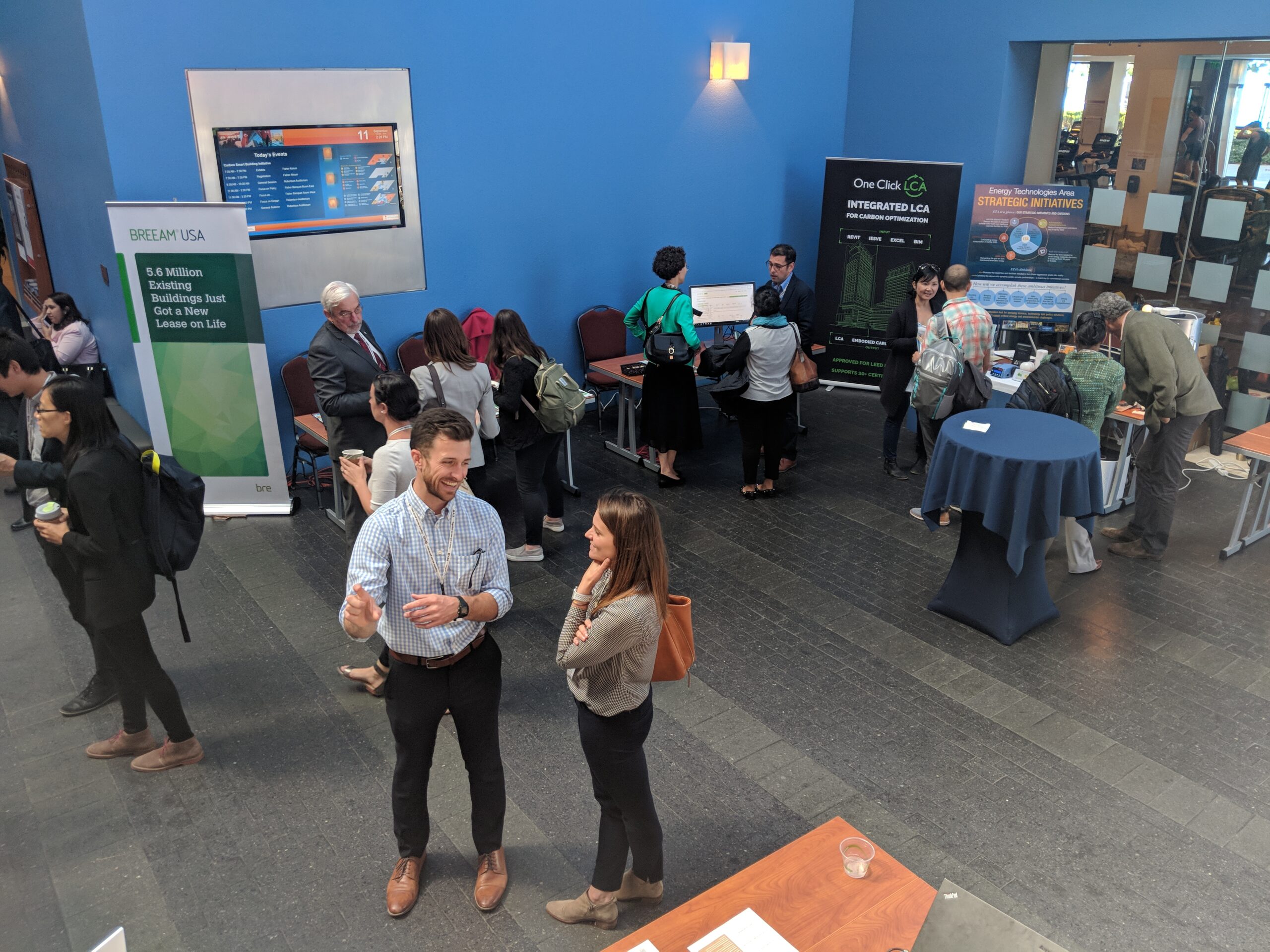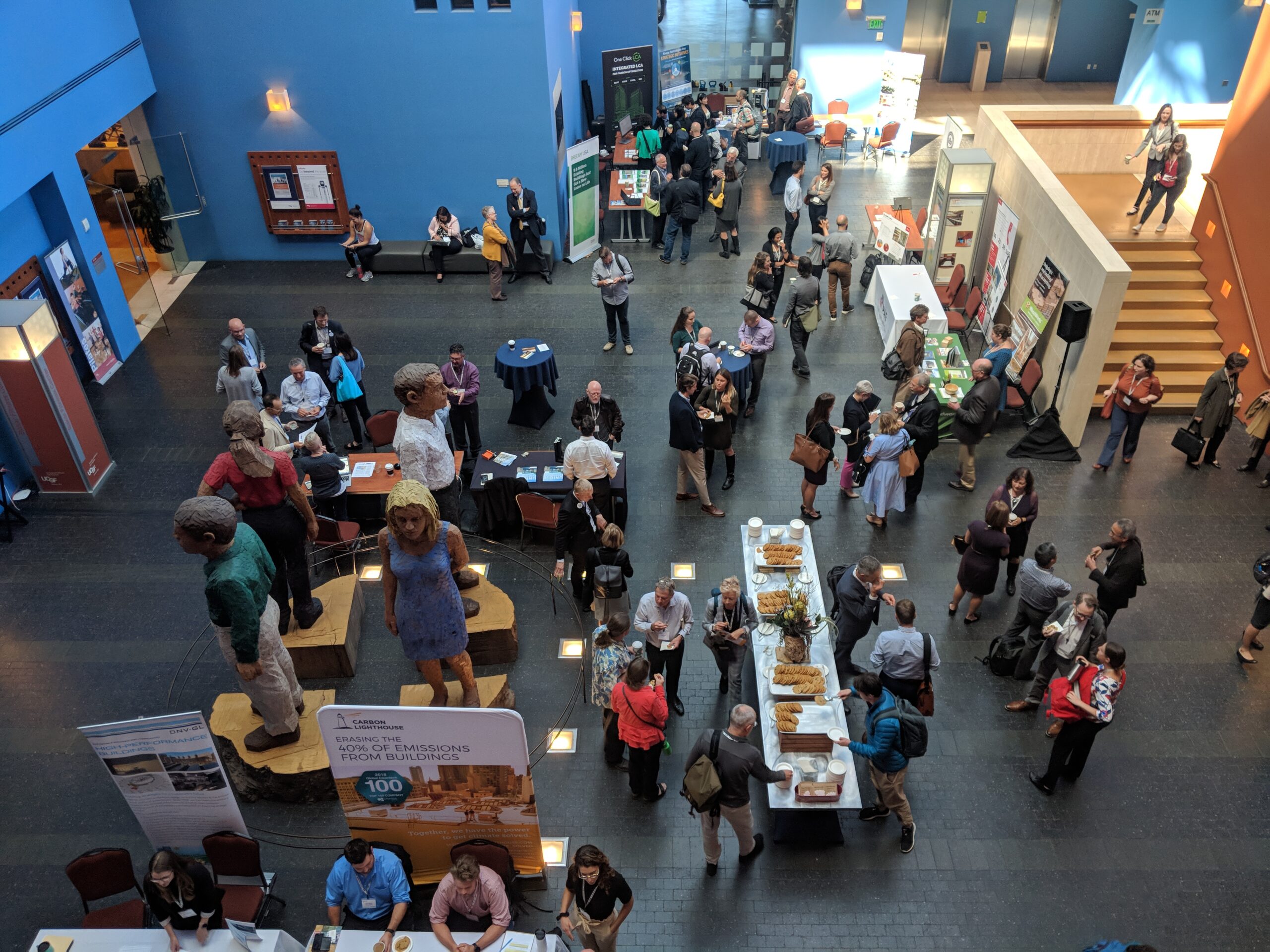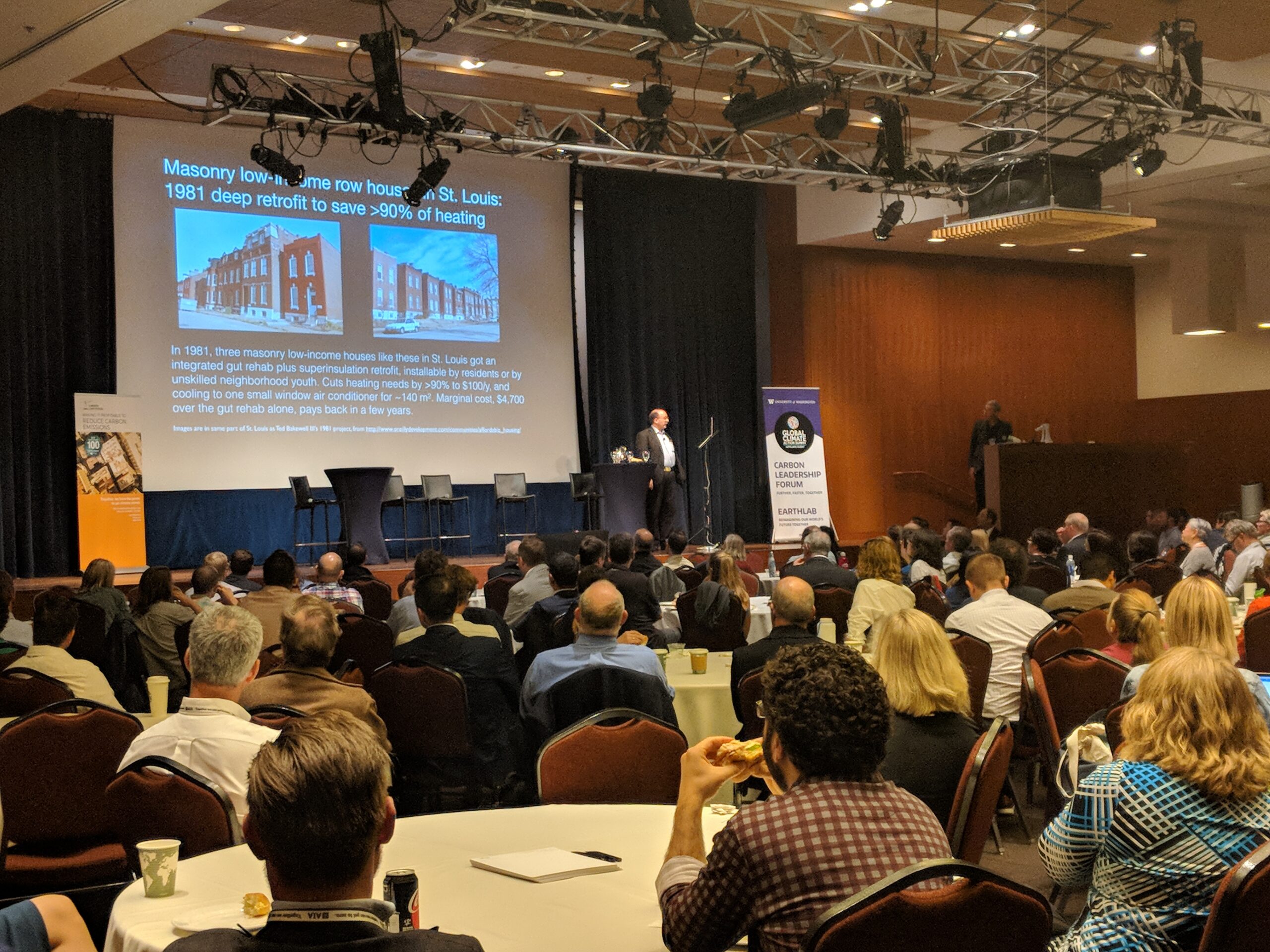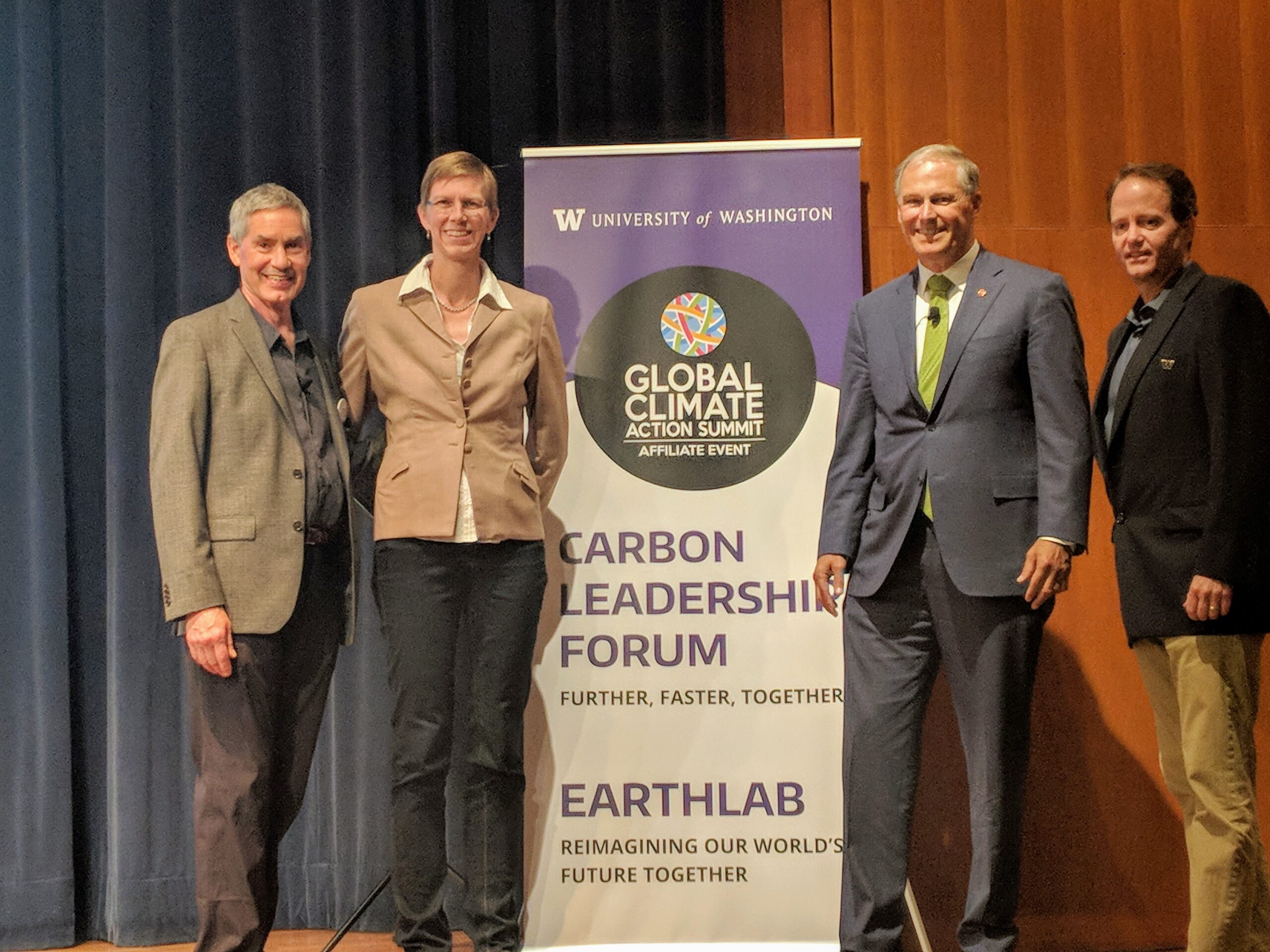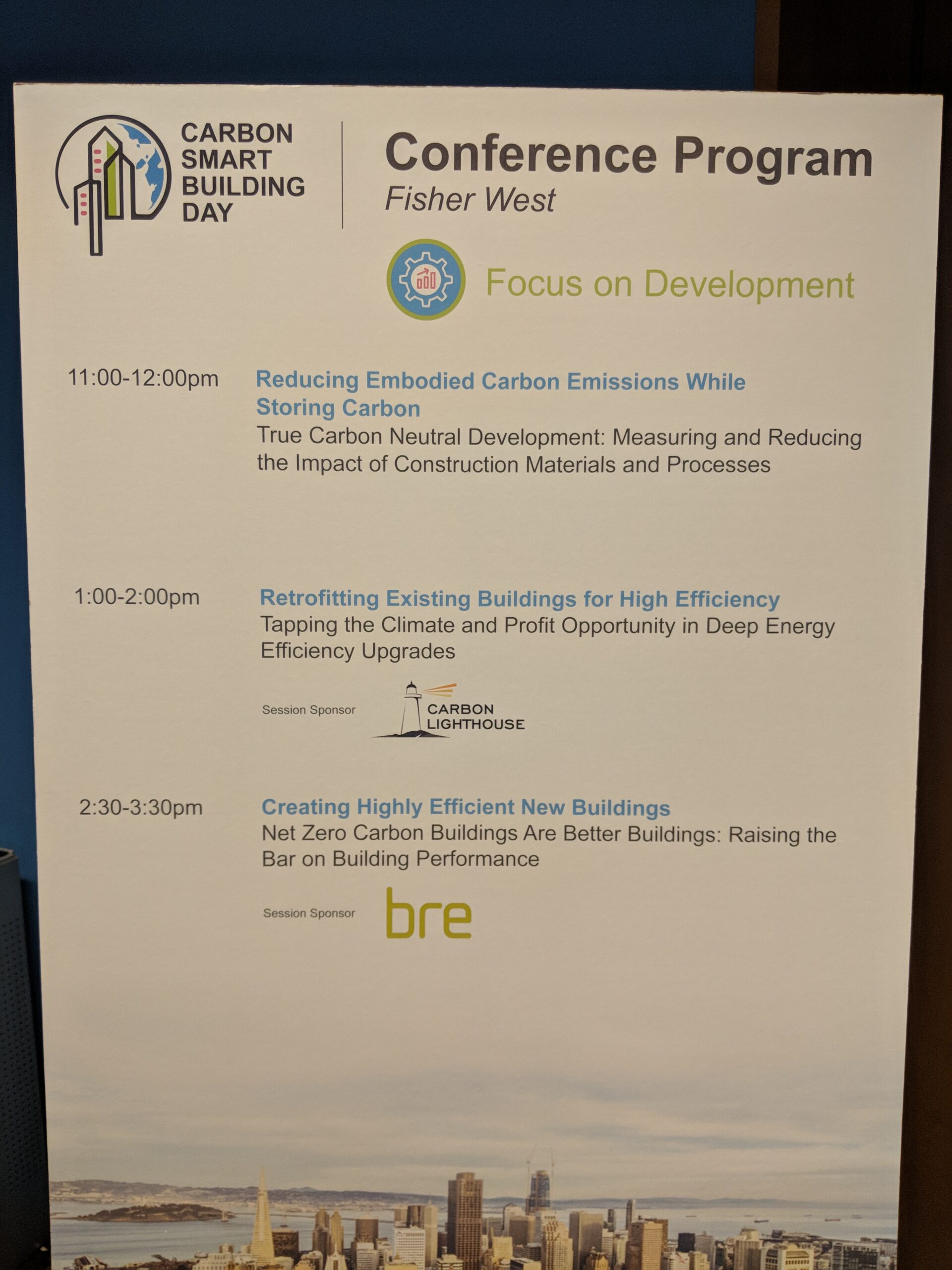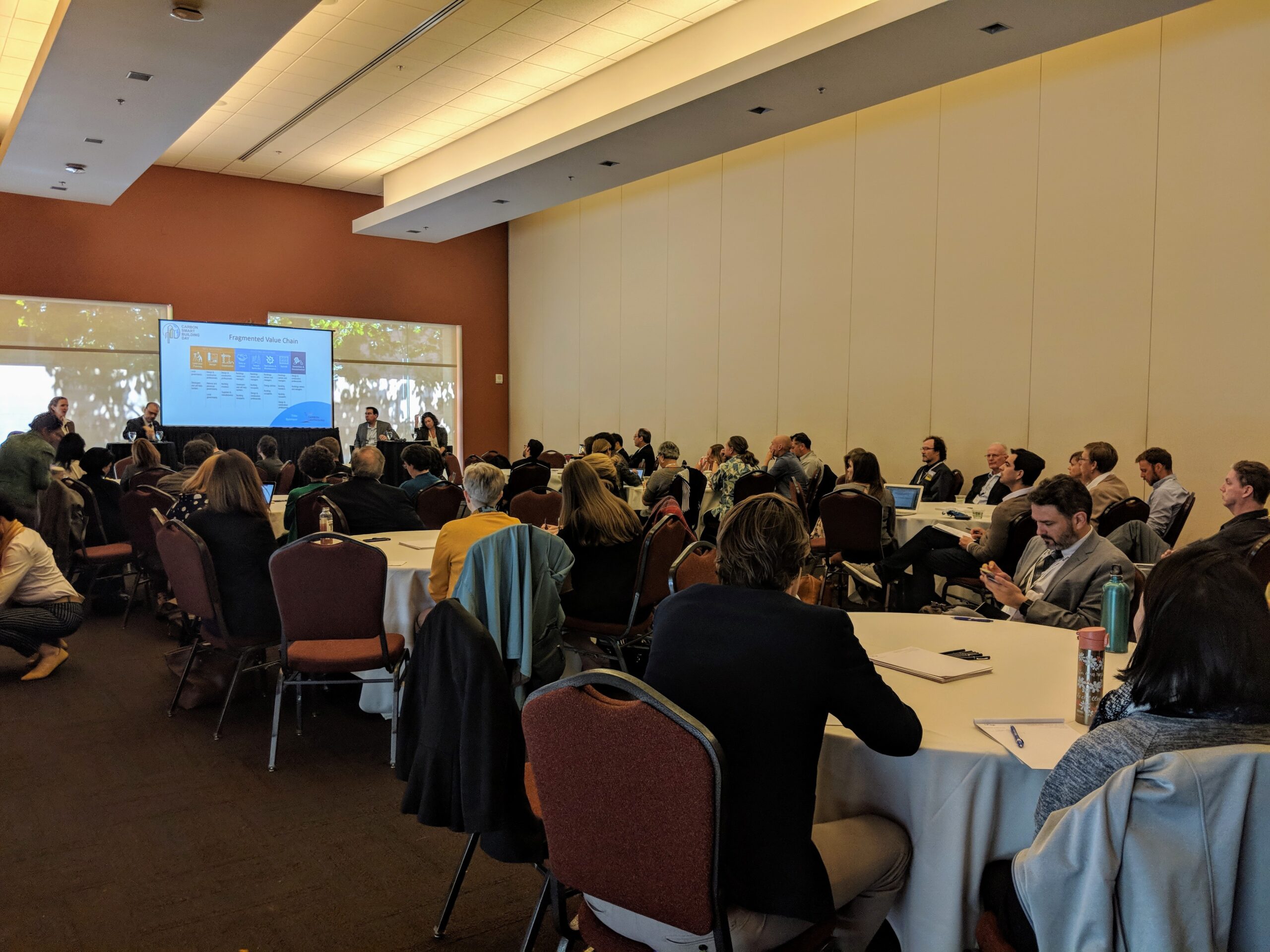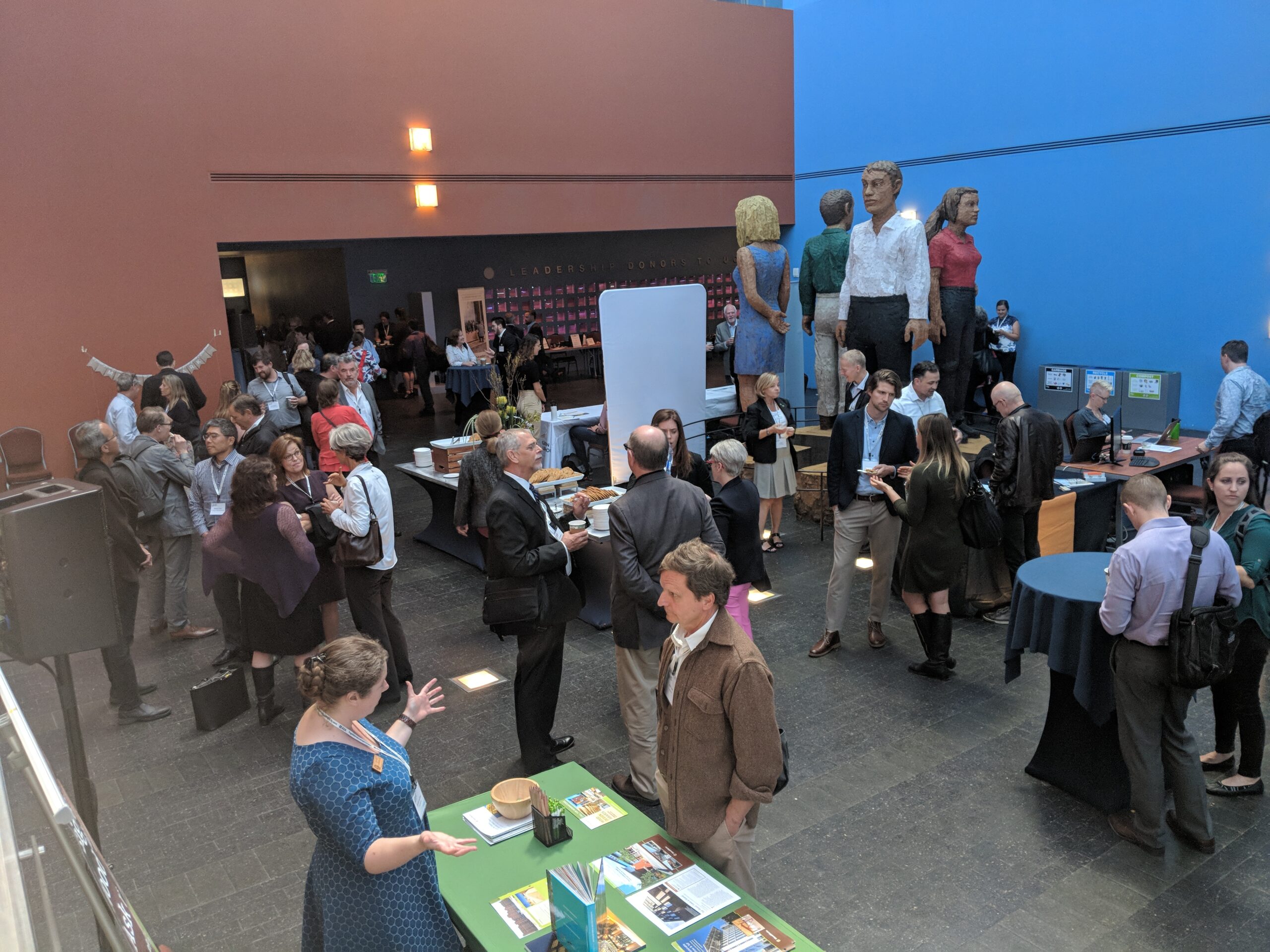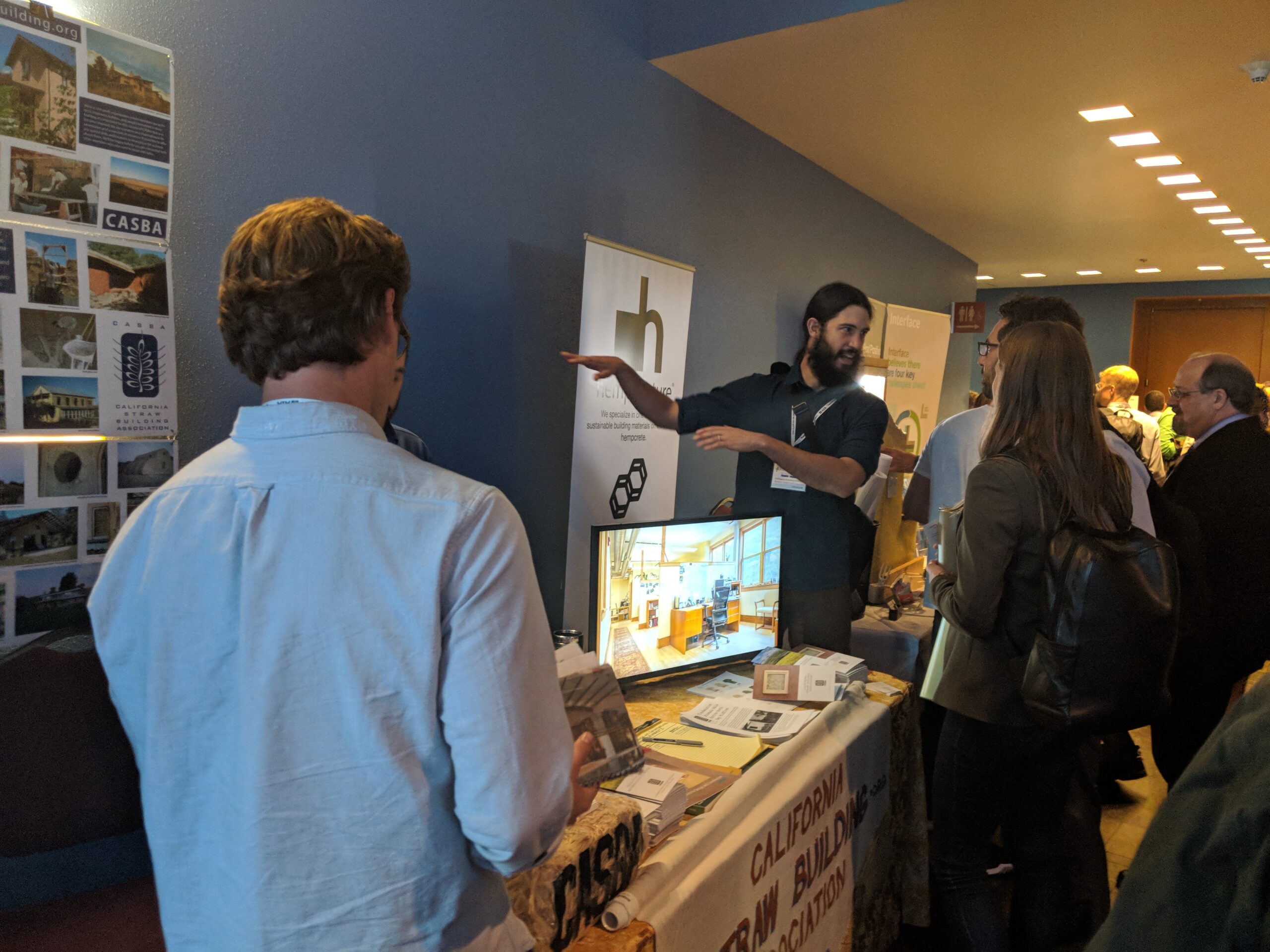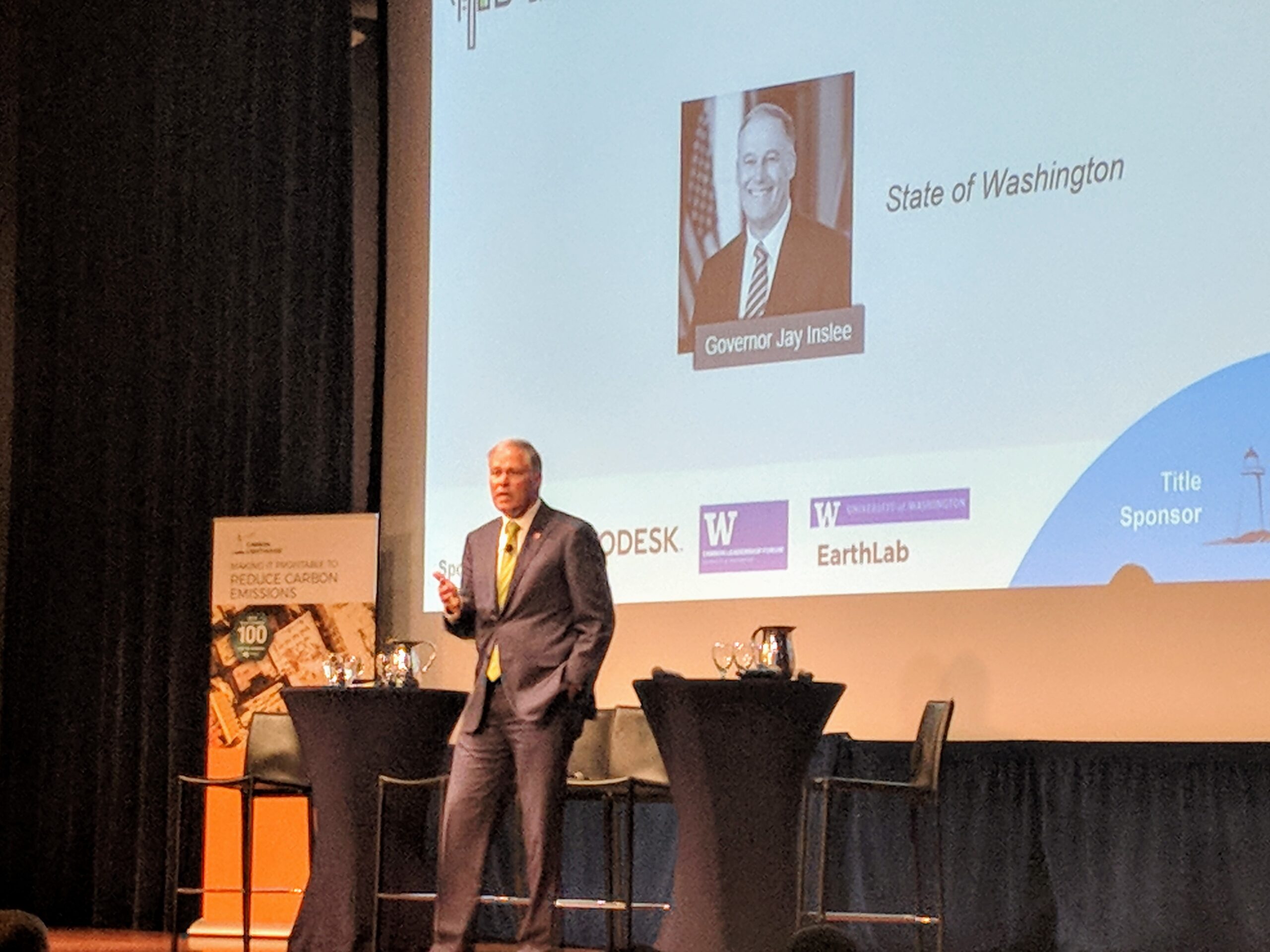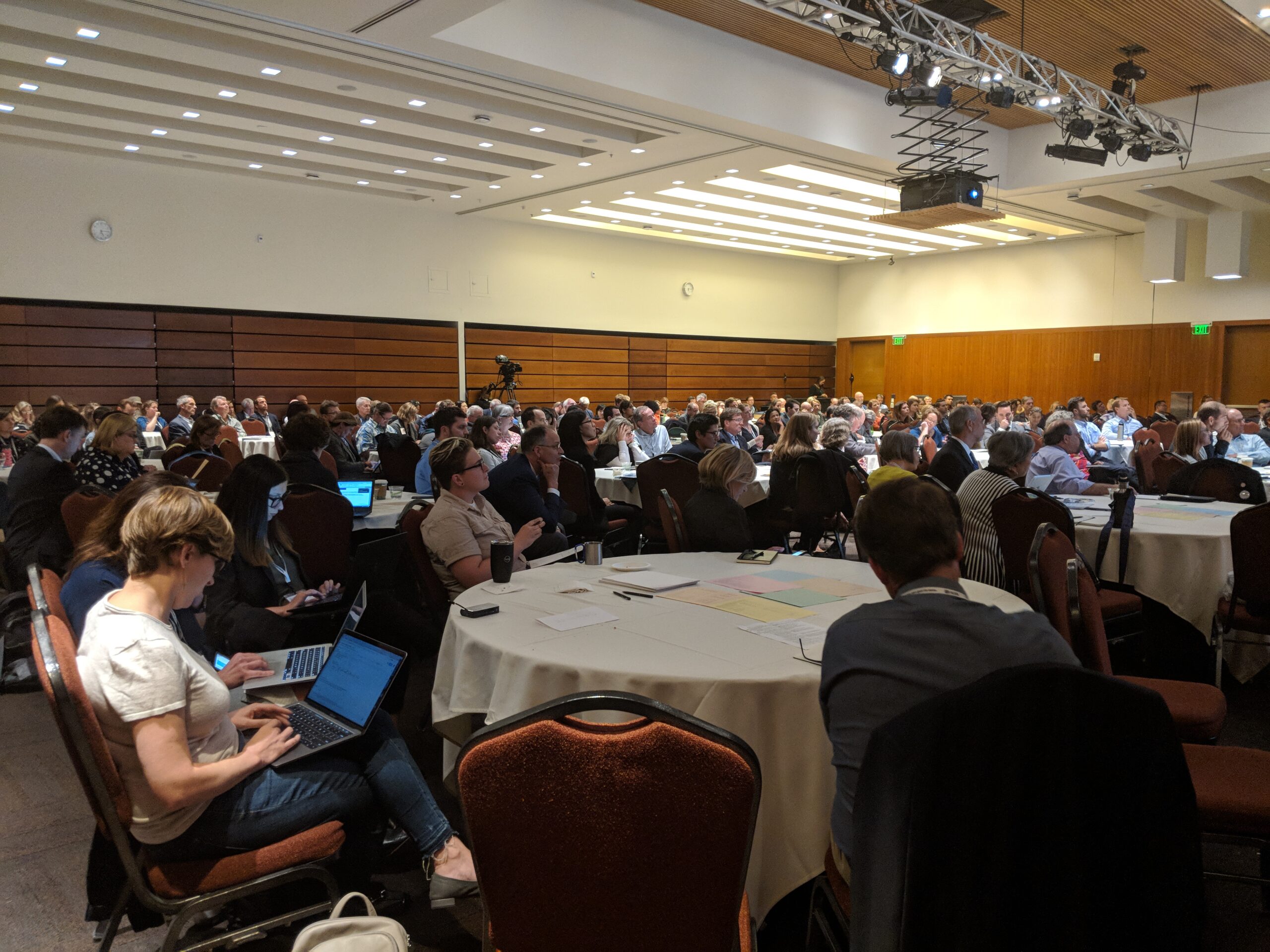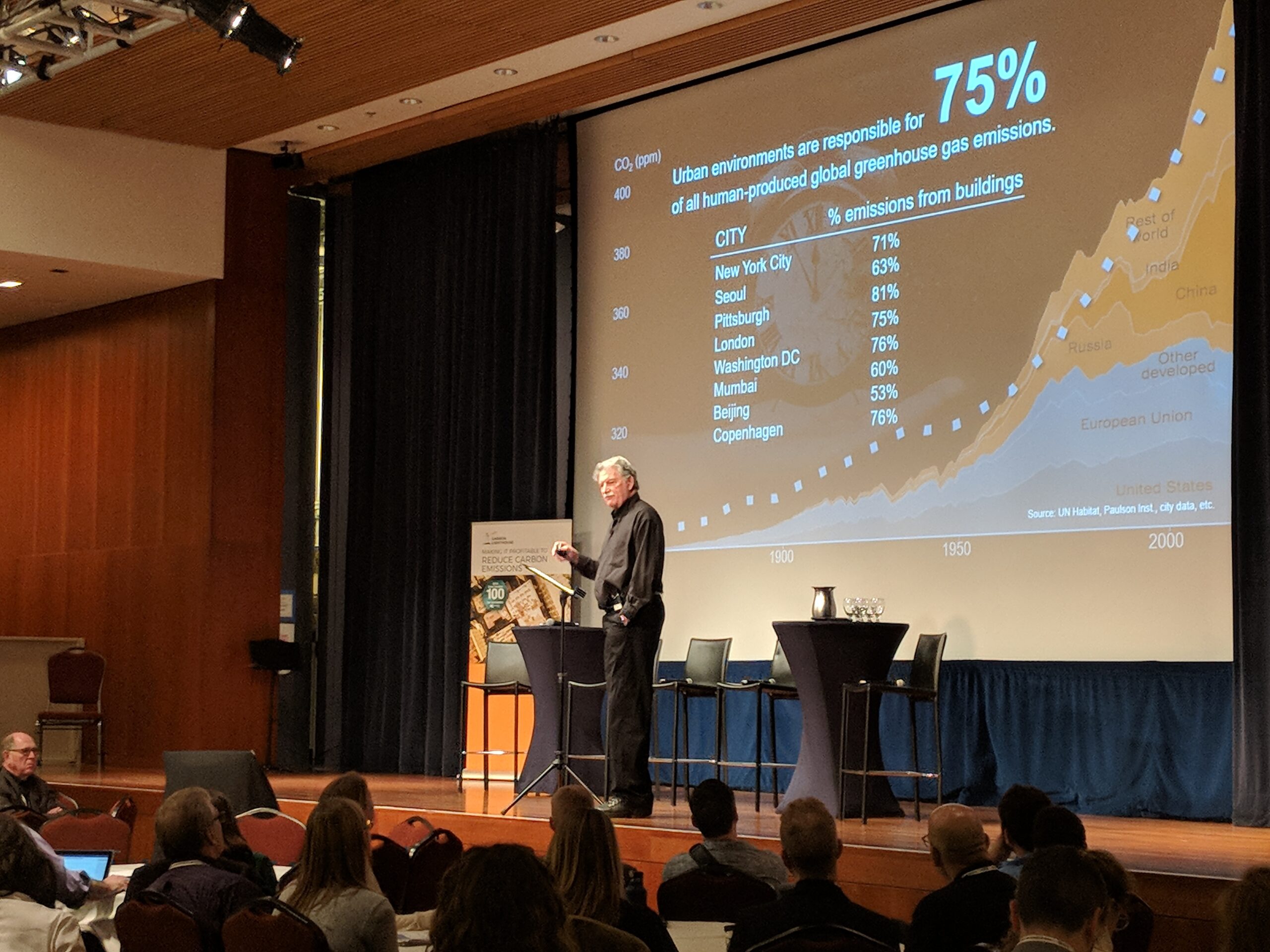Carbon Smart Building Day 2018
A day-long conference in San Francisco organized led by CLF on September 11, 2018, affiliated with the Global Climate Action Summit.
300 building industry professionals met to accelerate a global movement toward a Net Zero Carbon built environment. They came to share the latest tools, resources and programs to help firms thrive in a Net Zero Carbon future. The conference may have been the first industry-wide gathering to target the reduction of embodied carbon alongside operational carbon, plus community health and equity as essential to meeting the carbon challenge.
Education and Inspiration
La conferencia fue diseñada para inspirar a los profesionales de la industria de la construcción a liderar el entorno construido hacia Net Zero Carbon y equiparlos con las últimas herramientas, recursos y programas para ayudar a las empresas a prosperar en un futuro Net Zero Carbon. Asistieron arquitectos, ingenieros estructurales, contratistas, promotores inmobiliarios, fabricantes de materiales y responsables políticos que aspiran a reducir la huella de carbono de sus proyectos y hacer de la industria de la construcción una gran parte de la solución al cambio climático.
Attendees sensed that built environment is the largest contributor to climate change: but also a massive carbon sink and source for good if building industry professionals collaborate effectively to make new buildings zero net carbon in their materials, construction and operation, retrofit existing buildings to be carbon neutral in their operation, and ensure that the built environment fosters healthy, thriving communities.
Carbon Smart Building Day Goals
Carbon Smart Building provides concrete steps that governments, corporations, organizations and individuals can take to lead the industry transformation necessary to realize our vision of a Net Zero Carbon (NZC) built environment.:
- New Buildings – Operations and Embodied Emissions. All new buildings and developments are NZC by 2030, with increase in carbon-storing material use.
- Existing Buildings – Operations and Embodied Emissions. Extend building lifespan to 100 + years and retrofit existing buildings to NZC operations by 2050.
- Health and Equity. All new building (material production, construction, and use) is healthy, equitable and just.

Click to See More Images
Playlist of Carbon Smart Building Presentations
The Global Climate Action Summit was an opportunity to bring together the diverse threads of a global movement to create a thriving, regenerative building industry that can help solve our most pressing challenges.

The Declaration, read in public ceremony at the conference’s conclusion, was signed by 250 individuals representing over 180 companies and organizations across the building industry.
We acknowledge that we hold this world in trust and recognize the immediate threat climate change and its impacts pose to current and future generations. We cannot address the climate crisis without eliminating carbon emissions from the built environment, which today accounts for more than 40 percent of greenhouse gases. Moreover, building space is expected to double by 2050 – the equivalent of adding another New York City every 35 days, which will sharply increase embodied carbon emissions from new construction. We, therefore, must act urgently and collectively to transform the built environment from a leading driver of climate change to a significant and profitable solution.
To confront this crisis, we must dramatically remake the built environment by:
- Making use of all available technologies and processes to ensure that new construction projects begin and end with net-zero carbon emissions in mind.
- Taking an active, data-driven approach to eliminate energy waste in new and existing buildings.
- Minimizing embodied carbon in buildings by embracing low-carbon and carbon sequestering building materials and processes.
- Accelerating the growth of distributed energy resources (such as targeted solar, wind, and storage) that enable buildings to play their role in the decarbonization of our energy systems.
To this end, we will intensify our efforts to improve building sustainability in design, development, ownership, management, measurement, tools, investment and material supply chains — to maximize environmental, economic and equity outcomes, using market-based principles to scale solutions for all and have global impact.
We are inspired by the Net Zero Carbon Buildings Commitment. We challenge companies, cities, states and regions to reach net zero emissions in all new buildings by 2030, and to retrofit existing buildings to meet net zero carbon targets by 2050. We support carbon smart building as a global movement to create maximum collective impact.
Together, we can help draw down excess atmospheric carbon and create a built environment that supports a healthy, equitable, and sustainable human community.
